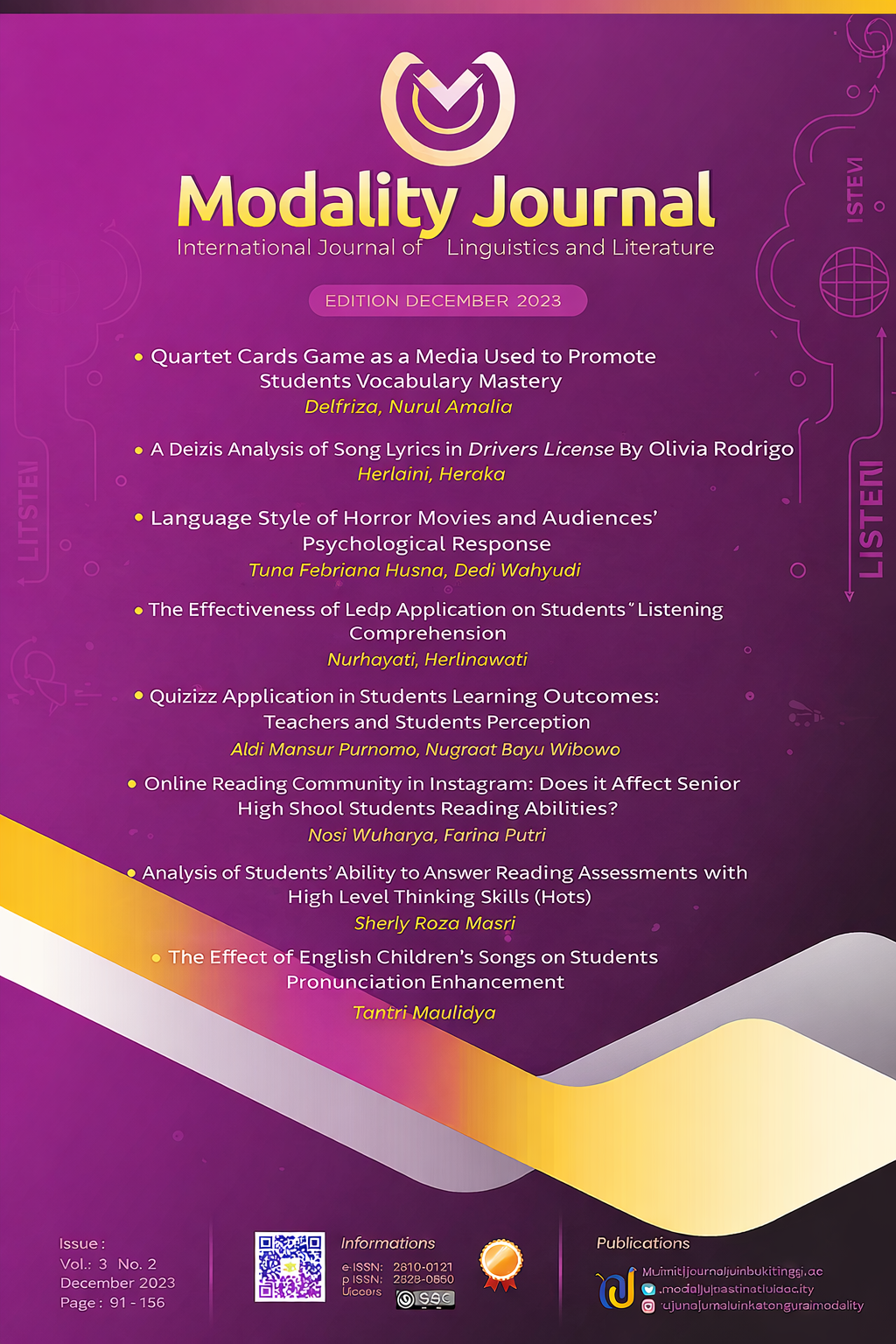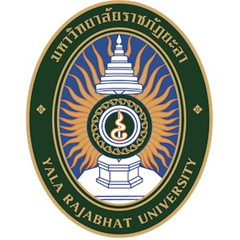Quizizz Application in Students Learning Outcomes: Teachers and Students Perception
DOI:
https://doi.org/10.30983/mj.v3i2.6719Keywords:
perception, quizizz, students, teacherAbstract
References
Amalia. (2020). Quizizz Website as an Online Assessment for English teaching and Learning: Students’ Perspectives. JoELT (Journal of English Language Teaching), 7(1), 1–8.
Basuki Y & Y Hidayati. (2019). Kahoot! or Quizizz : the students’ Perspectives.
Chaiyo & Nokham. (2017). The Effect of Kahoot, Quizizz and Google Forms on the Student’s Perception in the Classrooms Response System. IEEE Journal, 1–5.
Darmawati, G., Elin, Y., & Monia, F. A. (2021). Pengaruh Desain Media Pembelajaran dengan Program Adobe Flash CS 6 untuk Belajar Berhitung. Journal of Practice Learning and Educational Development, 1(3), 110–116.
Daulay, S. H., Damanik, emeliya S. D., Benni Ichsanda Rahman, Wandini, Rizky, R., Reflina, & Anggraini. (2020). Sara’s Cooking Party Game As a media To enrich student’s English Vocabulary. International Journal of Psychosocial Rehabilition, 24(8), 15429–15256.
Fakhruddin & Nurhidayat. (2020). Students’ Perception on Quizizz as Game_Based Learning in Learning Grammar in Written Discourse. Wiralodra English Journal, 4(2), 28–38.
Fithriani, R., Dewi, U., Daulay, S. H., Salmiah, M., & Fransiska, W. (2019). Using Facebook in EFL Writing Class: Its Effectiveness from Students’ Perspective. Annual International Conference on Language and Literature (AICLL), 3(19), 634–645.
Muhasim. (2017). Pengaruh Teknology Digital, Terhadap Motivasi Belajar Peserta Didik. Jurnal Study Keislaman Dan Ilmu Pendidikan, 5(2), 53–77.
Nurliana, E., & Nugroho, O. F. (2021). Analisis hasil Belajar Dalam Penggunaan Quizizz Pada Pembelajaran IPA. 4, 14–21.
Pratama, A., Chan, A., Faizal, & Budiono Hendra. (2021). Pemanfaatan Quizizz Sebagai Media Penilaian Pengetahuan Berbasis Daring Pada Pembelajaran Jarak Jauh Di Kelas V Sekolah Dasar.
Sesmiarni, Z., Darmawati, G., Yuspita, Y. E., Yeri, S., & Ikhsan, I. (n.d.). Android-Based Augmented Reality: An Alternative in Mastering Tajweed for Student Learning.
Sukmainata Nana Syaodih. (2017). Metode Penelitian Pendidikan. Remaja Doskarya.
Yuspita, Y. E. (2023). Sistem Informasi Consultation Online Menggunakan Bahasa Pemograman PHP dan Database MySQL. INCODING: Journal of Informatics and Computer Science Engineering, 3(1), 11–20.
Yuspita, Y. E., Minova, P. N., & Ansara, A. D. P. (2022). Selection Of Internet Provider To Improve Quality Of Service And Learning Using Decision Support System. Jurnal Mantik, 6(1), 105–111.
Downloads
Published
How to Cite
Issue
Section
Citation Check
License
Copyright (c) 2023 Sholihatul Hamidah Daulay, Sholihatul Hamidah Daulay, Achmad Ramadhan, Achmad Ramadhan, Sri Wahyuni, Sri Wahyuni

This work is licensed under a Creative Commons Attribution-ShareAlike 4.0 International License.
Authors who publish with this journal agree to the following terms:
- Authors retain copyright and grant the journal right of first publication with the work simultaneously licensed under a Creative Commons Attribution License that allows others to share the work with an acknowledgment of the work's authorship and initial publication in this journal.
- Authors are able to enter into separate, additional contractual arrangements for the non-exclusive distribution of the journal's published version of the work (e.g., post it to an institutional repository or publish it in a book), with an acknowledgment of its initial publication in this journal.
- Authors are permitted and encouraged to post their work online (e.g., in institutional repositories or on their website) prior to and during the submission process, as it can lead to productive exchanges, as well as earlier and greater citation of published work (See The Effect of Open Access).




